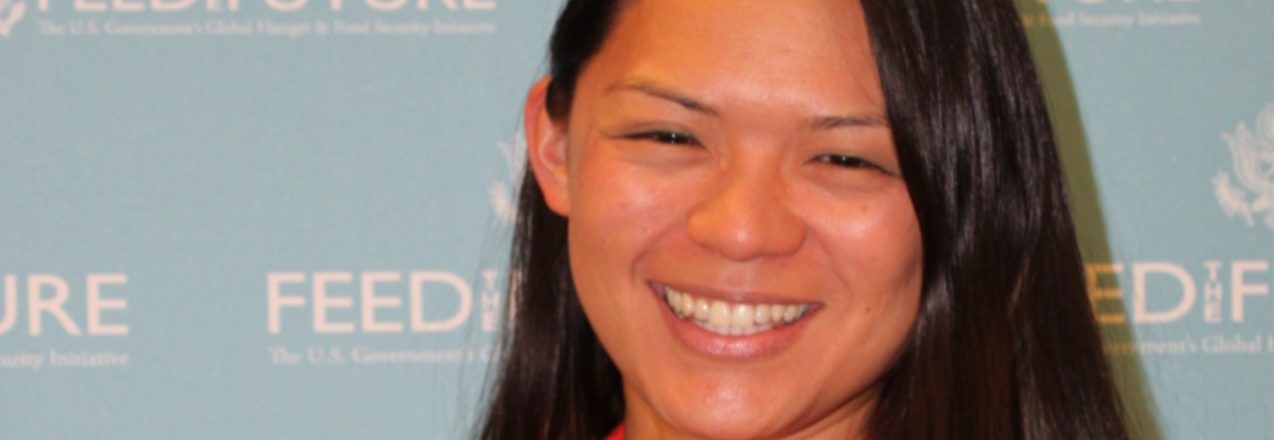Jennifer Chow is a Senior Policy Advisor in the Global Engagement and Strategy Office in USAID’s Bureau for Food Security. We spoke to her about why land is important to improving food security and advancing development.
Can you tell us a little bit about yourself?
I provide policy and strategic guidance on global food security issues with US Government leadership, other donors, international organizations and other development partners. I also provide input to help shape international norm-setting principles and voluntary guidelines. I try to make sure this policy guidance reflects the work of USAID on the ground and the development priorities of our government, and in turn that our work reflects global priorities and best practices, and that we at USAID focus on emerging issues so that our resources and efforts are effective and well-coordinated.
A lot of this work includes finding common ground and identifying opportunities to work better with other development partners (as well as within our own government) and building trust and long-term working relationships. I also focus on addressing issues such as resource governance, land tenure & property rights and responsible investment as part of a holistic global food security agenda.
Why is land important to USAID?
In general, I think land represents at least two critical things to everyone: 1) it is an economic asset which can be transacted (bought, sold, rented, mortgaged, etc) and 2) it is a livelihood asset which can provide shelter, a home, food, storage, safety & protection and other benefits.
Investments in land are often part of the essential economic stability and food security picture for families, communities and countries, which makes land an important part of our larger development vision. The support we provide in the countries where we work and the partnerships we shape can be critically altered by policies or dynamics around land.
What is the connection between land tenure and food security?
One simple example is that tenure security can lead to investments to improve the land as well as increase food productivity. For farmers in particular, it’s important to have a stake in the land and a sense of security that you will actually be able to reap what you sow. It’s important to understand that nurturing the soil will yield benefits next season, that you can treat the land as an investment for future generations. All of these factors fundamentally motivate farmers (and others) to build sustainable irrigation and crop rotation systems, or use other climate-smart and holistic agriculture practices involving precision farming, different energy use, tillage and fertilizer practices. Land, and the soil and other conditions related to it, are critical for growing food, for contributing to reliable sources of nutrition and income and for developing or contributing to trade and markets.
How is USAID working to fight hunger, strengthen land rights, and/or support responsible investments?
USAID provides technical expertise and capacity building to help governments structure, enact and implement policies and procedures related to land and resource rights. We encourage inclusivity, help connect people to processes and facilitate discussions. We also create and provide guidelines and checklists for companies, communities and governments to approach land rights and responsible investment issues in a comprehensive manner. We incentivize this behavior through partnerships with companies, non-governmental organizations and government partners; through programs on the ground; through monitoring and evaluation; and through continuously pushing for transparency and consistency.
Through extensive consultation and learning from past experience, including from the first five years of the Feed the Future initiative, USAID developed a new Global Food Security Strategy for 2017-2021. It represents a whole-of-government approach with agency-specific implementation plans. It has Congressional support (and mandates) via the Global Food Security Act of 2016. It goes into detail about how we will contribute to the achievement of global food security and the Sustainable Development Goals while elevating nutrition and resilience and emphasizing market-led development.
USAID also coordinates with other development partners on land mapping activities and on using surveying tools and data to inform better policies and programs. We also partner with companies and NGOs to pilot the implementation of responsible investment guidelines, to document concerns and needs from various stakeholders and to develop win-win scenarios for investors and communities.


